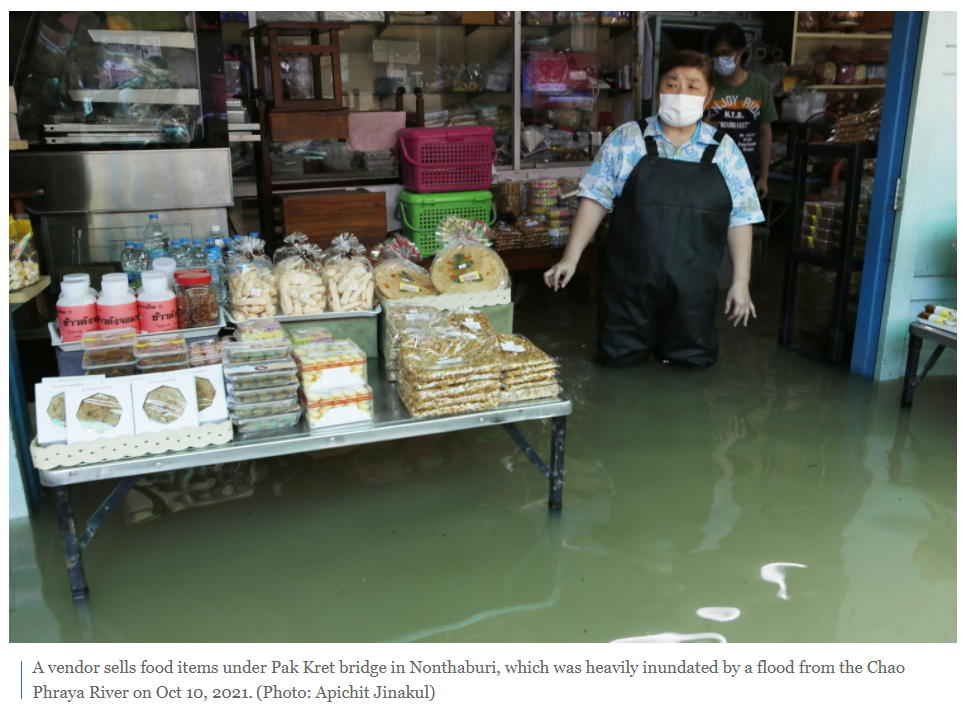Thailand: Ministry aims to keep living costs in check
The Commerce Ministry’s Internal Trade Department is keeping a close watch on the prices of essential and agricultural products for the remainder of the year as floods are affecting parts of the country and energy prices are rising.
Wattanasak Sur-iam, the department’s director-general, said products under the department’s focus include consumer products for daily use, cleaning and washing products, construction materials, as well as food and agricultural products such as rice, eggs, pork and fruits.
In its best efforts to reduce the impact on consumers, Mr Wattanasak said the department recently called a joint meeting with logistic operators, suppliers of products and manufacturers to ramp up stock and asked for cooperation from retailers and wholesalers to maintain the price of their products to help consumers who are still reeling from the pandemic and lower income.
His department also pledged to continue providing mobile grocery schemes, selling essential items such as cleaning and washing products, kitchenware and products used daily to communities to help reduce the cost of living.
During the third wave of the pandemic, the department dispatched 1,000 mobile grocery stores nationwide to reduce costs.
According to Mr Wattanasak, the department is also ready to link with central markets and wholesale and retail markets in each region to help distribute farmers’ agricultural products, particularly rice, eggs and vegetables.
The department is also teaming up with gas stations in Greater Bangkok such as PTT, PTG Energy Plc (PTG), Shell, and Bangchak to develop new distribution channels for agricultural output.
Ronnarong Phoolpipat, director-general of the Trade Policy and Strategy Office (TPSO), said consumers should rest assured about the stability of product prices as the Commerce Ministry is regularly supervising price movement of products and services.
The government has put 51 products and services on the price control list this year, of which 46 are products and five services.
The price control list covers essential items for daily use such as food, consumer products, farm-related products (fertilisers, pesticides, animal feed, tractors and rice harvesters), construction materials, paper, petroleum and medicines.
Listed foods include garlic, milled rice, corn, eggs, cassava, wheat flour, powdered/fresh milk, sugar, vegetable/animal oil and pork, while listed services include delivery services for online businesses, agriculture-related services, medical services and other healthcare services, along with payment services at service points.
Businesses making or selling listed products are required to inform authorities of production costs and seek approval before increasing prices.
“People may have felt the cost of living rise in September when headline inflation, as gauged by the consumer price index [CPI], rose by 1.68% year-on-year after a contraction of 0.02% in August,” said Mr Ronnarong. “But the headline inflation’s rise in September was mainly due to the end of [state] measures on lowering the cost of living [electricity and water bills], the high prices of gasoline, and a hike in the prices of products and services for daily use such as ready-to-eat foods, noodles, rice with curry, breakfast and a la carte.”
According to the Trade Policy and Strategy Office (TPSO), core CPI, which excludes raw food and energy prices, rose 0.19% year-on-year in September, up from 0.07% in the previous month.
For the third quarter of 2021, headline inflation rose by 2.36% year-on-year compared to the third quarter of last year, and rose 0.74% quarter-on-quarter compared to the previous quarter this year.
For the first nine months this year, average headline inflation was 0.83% year-on-year and core inflation was 0.23%.
The TPSO forecast the CPI in the fourth quarter of the year to rise continuously from the previous quarter, attributing the rise to three major factors comprising: higher energy prices; the easing of Covid-19 restrictions that will promote economic activity; and the baht’s depreciation, which will affect manufacturing and logistics costs.
The prices of some volatile raw food items, particularly rice, fresh vegetables and fruits, are expected to fluctuate in accordance with variations in climate and natural disasters.
Nevertheless, the Covid-19 situation is a major risk factor that can substantially impact economic recovery and inflation which must be monitored, he said.
The ministry expects the inflation rate to expand in the range of 1.4-1.8% in the fourth quarter from the corresponding period last year.
For the whole year, the Commerce Ministry projected headline inflation to move in a range of 0.8% to 1.2% (with an average of 1%), narrowing from 0.7% to 1.7% (with an average of 1.2%) predicted earlier. The rate is described as being appropriate and enough to support the Thai economy.
The latest projection is based on expected economic growth of 0.7-1.2%, with Dubai crude oil prices averaging US$65-70 per barrel, and the baht at a rate of 31.5-32.5 baht per US dollar.
Source: https://www.bangkokpost.com/business/2204151/ministry-aims-to-keep-living-costs-in-check


 English
English




